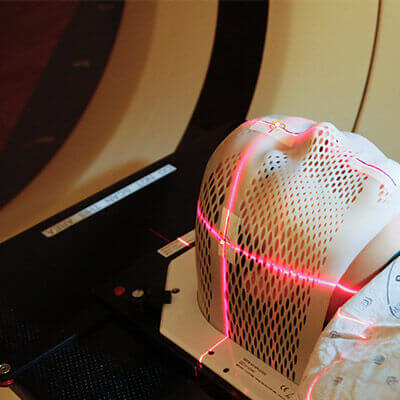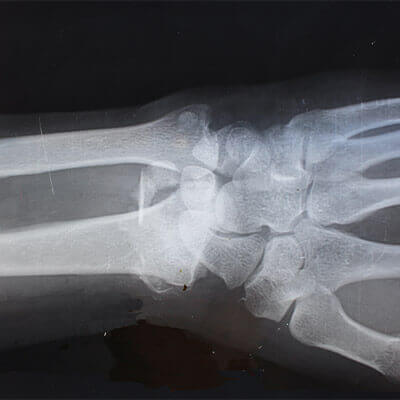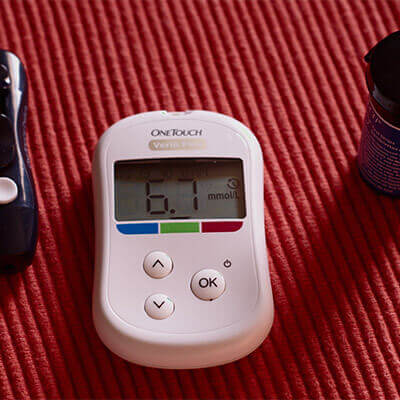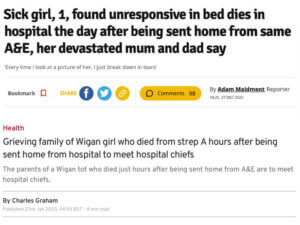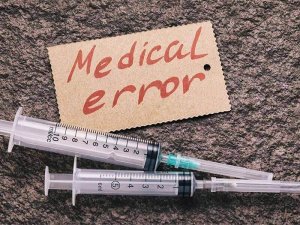Medical Negligence Solicitors
Our team of Experienced and Regulated Medical Negligence Solicitors can guide you through every aspect of your Medical Negligence Claim.
We have years of experience within the claims industry, helping many people receive the compensation they deserve.
Excellent TrustScore | 4.6 on TrustPilot
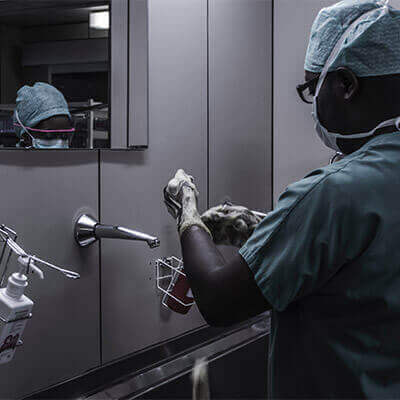
Our work has been featured in







What is Medical Negligence?
We all put our trust in the medical judgement and information we are given by qualified health professionals and practitioners.
But sometimes their advice or treatment can result in things going wrong.
There are many points from the first doctor’s appointment to treatment options where errors can be made. Unfortunately, medical negligence, otherwise known as clinical negligence, cases are on the rise.
Our solicitors specialise and can help you in all areas of medical negligence including:
How can I prove negligence by my treating clinician?
In order for your medical negligence claim to be successful, there is a three-part test which must be established. Namely:
- The you were owed a duty of care by your treating practitioner – this is often the easiest part of the test to prove.
- The duty of care was breached. This is established on examining what would have been the reasonable standard of care that should have been provided and would a reasonable body of experts have taken the same course of action. If they would then there can be no claim for medical negligence. The courts do not expect all healthcare practitioners to meet the standards of the most experienced or skilful members of the profession, only of an ordinarily competent practitioner in that particular field.
- The breach caused you injury or exacerbated a pre-existing condition. We must establish any harm that has occurred is as a direct result of an act or a failure to act.
Often claimants can prove that they were owed a duty of care and that the duty of care was breached, but still not have any prospects of being successful in a claim for medical negligence. This is because we must meet all three of the criteria above and not just 2 out of 3.
In terms of stage three of the above test this can often be the most difficult stage to prove as the breach of duty and/or delay in diagnosis may result in the same outcome even if the medical treatment providers had acted correctly. For example, if you attended A&E with a fracture to your arm but this is missed on the x-ray and you return a week later and it is picked up, but the treatment is the same in any event then you may not be able to make a successful claim if you cannot show that you suffered in excess of what you would have suffered in any event.
Errors of judgement do not automatically amount to breaches of duty. They only do so in circumstances where the doctor has not acted with a level of care that would be expected from a reasonably competent professional. Those professionals will be ordinary competent practitioners in that particular field.
Establishing causation can be difficult, as it must be demonstrated that ‘but for’ the practitioners action/inaction, harm would not have occurred and claims for medical negligence most frequently fail due to an inability to establish causation as there are often a variety of possible explanations for the outcome.
A case will not be successful simply because a claimant does not agree with the action taken by a medical practitioner or because they do not like the outcome.
In all cases for medical negligence we must risk assess the claim and only proceed if we believe that a claimant has more than a 51% change of being successful as we would not be able to obtain insurance on a claim if we assessed it to have under a 51% chance of success. Furthermore, we owe a duty to our clients and the Court not to pursue claims that we do not believe will be successful.
How long do I have to bring a claim?
The civil procedure rules in England and Wales allow for claims for medical negligence to be started within 3 years of the alleged negligence occurring or within 3 years of the claimant becoming aware of negligence (date of knowledge), unless the claim involves treatment to a child (minor claim).
Date of knowledge will normally be determined through a review of the medical records. If a claimant and/or family members were advised by the medical practitioner and/or treatment provider that negligence occurred then this will be determined as the “date of knowledge”.
If the claimant and/or family were not advised at the time of the negligence, but became aware of potential negligence at a later date, such as through getting a second opinion, then this will be taken as the date of knowledge.
Claims involving children do not have the standard 3 year limit. Instead children have three years after their 18th birthday to bring a claim, or if they did not know of a possible claim 3 years after their date of knowledge.
What are the Stages of Medical Negligence Claim?
Medical negligence claims generally follow a set of stages. The stages can vary depending on the specific circumstances of each case.
Pre-action
Estimated timescale: 3-5 months
We will apply for all the relevant medical records. The records can take up to 8 weeks to be provided to us.
Once we have your records, we will take an initial statement from you. We will cross reference your recollection of events with your medical records.
We will forward to you the necessary forms to complete and sign for us to obtain the records once you have authorised us to act on your behalf.
At the same time, we ask you to gather together all documents and information available to you that relate to any financial losses or expenses you believe you have incurred as a result of what you believe to be the result of negligent medical care.
Once the statement has been taken, we will send the statement to the insurers together with the application form and ask them to provide cover for your claim.
If the insurers agree to cover the claim, then we will move on the stage below.
If the insurers refuse cover, then we will discuss your options at that stage.
Instruction of independent medical experts on issues relating to the quality of care and cause of injury.
Estimated timescales: 3-9 months
To succeed in a claim for compensation arising from medical care you have to be able to prove on the basis of independent medical evidence that:
The care provided was of such low standard that it was negligent; and
The identified negligence caused an injury and financial loss.
We will therefore instruct an expert(s) to advise on the quality of care, the cause of injury (or death in fatal cases) and on your future condition ad prognosis.
In some cases, it is appropriate to obtain an expert report first. We will advise you why we have chosen an expert to look at the quality of care or an expert to look at the cause of your injury.
We will forward to you a copy of the expert letter of instruction to keep with your records.
Instruction of Counsel (Barrister) to review and advise on merits (often in conference with medical expert)
Estimated timescales: 1-3 months
It is only on receipt of independent expert evidence that we can properly assess both the prospects of the case succeeding and the likely value of the claim.
Once we have a Breach of Duty report we will then advise you again as to the prospects of success.
We may, at this stage, arrange a conference with the medical experts and a specialist Barrister (otherwise known as Counsel).
You will be invited to attend any conference with Counsel and experts, and it may be that you would wish a member of your family to attend with you for support.
Clinical Negligence Protocol
Estimated timescale: 4-6 months
There have been many changes over recent years to the way in which we proceed with clinical negligence claims. One of these changes was to introduce the clinical negligence protocol. This protocol provides guidelines to both parties as to how to conduct themselves through the initial states.
Prior to commencement of proceedings, it is expected that the Claimant (i.e. you) will serve a “Letter of Claim” on the other side (the Defendant). This letter outlines the basic medical facts and details the allegations of negligence together with discussion about the cause of your injury and any likely value of the claim. The Defendant then has four months within which to serve a “Letter of Response”.
This is an important stage in a clinical negligence claim as it is the first point where we can ascertain how the Defendants are going to defend the claim and argue their case. It is usual for the medical expert(s) to agree the draft Letter of Claim. You will be asked to review it and agree the contents prior to the service on the Defendants.
It is usual for this stage to have been completed before proceedings are commenced. There are some circumstances where it is not possible to comply with the clinical negligence protocol prior to issue of proceedings i.e., where a Claimant comes to a Solicitor close to their limitation period. However, in most cases, a Letter of Claim and a Letter of Response will be served.
Commencement of proceedings
Estimated timescales: 3 months and 1 day
Proceedings are commenced when the Claim Form is issued (stamped) by the Court. There is a time limit for commencing proceedings. If the claim is for an adult, it is three years from the date of an event or from when you knew or should have suspected that the care provided might be substandard. This time limit for a child is three years from the child’s 18th birthday. Subject to certain tests, children or adults with brain damage which prevent them from managing their own affairs, will not have any time limit to start of proceedings.
The Defendant has to be given three months’ notice of an intention to commence proceedings with full details of the case to be made. This is intended to: –
Help them investigate the claim;
Help them make an informed decision about whether to fight the claim or not;
Encourage them to admit their liability in appropriate cases; and
Prevent further delay if proceedings are started.
If a Letter of Claim has been served and a Letter of Response received, then the Defendant will have received the above information.
Statement of Case
Estimated timescale: 1-2 months
Each side has to state what their case is in a document known as the Statement of Case. The person who makes the claim is known as the Claimant.
The Claimant’s claim is set out in a document called the Particulars of Claim and is sent to the opponent with the Claim Form. This is called serving the proceedings. The opponent is called the Defendant. Their case (which is always served in reply) is called the Defence.
Allocation to Track
Estimated timescale: 3-4 weeks
After the Defence has been served the Court will send a questionnaire to complete about the case. They will then decide which track to allocate the case to. The majority of medical negligence cases will be allocated to what is called the multi-track. This means that they will be allocated more trial time and different rules will apply.
Case Management Hearing
Estimated timescale: 4 weeks
In the most complex cases the court will have a Case Management Conference (CMC). This is an administrative hearing at which the Court will decide upon and set the timetable for the management of the case. In some cases, this procedure may be done by post or e-mail.
Fixture for Trial Date
Estimated timescale: 4-7 weeks
The Court will fix a date for Trial. They will try to fix the earliest date as possible but will allow time for the procedural steps in the timetable to be completed and will take account of the availability of experts.
Disclosure
Estimated timescale: 4-7 weeks
You and your opponent are required to list and disclose all documents which are relevant to the issues in the case, even if they are unhelpful to your case. It is therefore important that you retain, for example, copies of all documents which relate to your financial loss.
Exchange of factual witness evidence on issues of negligence and causation with Defendant.
Estimated timescale: 2 months
We will exchange our factual witness evidence about what happened with the Defendant. In your case this will be your statement and that of anyone else present at the key time(s) whose evidence we wish to rely upon. The Defendants will serve statements from all the medical and nursing staff whose evidence the Court will seek to rely upon at Trial.
Conference to review evidence, merits and quantum.
Estimated timescale: 1 month
It is important for us to know how, if at all, the Defendants evidence affects our experts’ opinions. It is often helpful to review the factual witness evidence that we receive from the Defendants in a conference with our expert(s).
In some cases, we may canvas the views of our expert(s) in writing only.
Following this stage, we will ask our expert(s) to finalise their report ready for service on the Defendants.
Evidence of expert evidence on issues of negligence and causation with the Defendants.
Estimated timescales: 2-3 months
The next step in the proceedings is the exchange of expert evidence on the issues of quality of care and cause of injury. Until this stage, neither side will have seen the expert evidence to be relied upon by their opponent. In many cases the identity of the other side’s expert(s) will be unknown until this stage. This is a key stage in litigation.
This stage is the most important one so far as assessing the strength of the case has been put to for each party. It is the stage that the most accurate assessment of prospects of the case succeeding can be made.
Conference to review evidence, merits and quantum
Estimated timescale: 1 month
Generally, it will be necessary to review the expert evidence in conference with our expert(s). Often this will be done very shortly after the evidence is exchanged. The purpose of such a review is to consider what further preparation is required for Trial as well as reviewing the strength of the case.
Report to the Insurer/Funder.
Estimated timescale: 2 weeks
After the exchange of expert evidence, all funders/insurers require a detailed report on the merits of the case. This is because they need to decide whether they are willing to fund the case and to assess their risk.
If you are a privately paying client i.e., you are funding the case yourself, you will want to carry out the same risk assessment. We will advise you fully.
Detailed preparation of financial loss of claim and service of schedule of evidence.
Estimated timescale: To be prepared at the same time as the medical evidence
Prior to proceedings being commenced, it will be necessary for us to gather information and documentary evidence from you in order to assess the likely value of the claim.
Once proceedings have been issued and served, we will have to serve a schedule detailing your losses up to that date and identifying the likely losses that will be suffered in the future as a result of the negligently caused injury or death.
About 3/6 months after the case management timetable is set, we will have to serve a further schedule detailing all the past and future losses. We will have to serve any documents, witness statements or expert reports that will be relied upon to prove the claim. The preparation for this will be on-going throughout. It is important that you keep records of any expenditure and losses throughout and that you keep us informed of these. Depending upon the nature of the financial costs claim, further non-medical experts such as an employment expert or care expert may be instructed to advise in order to enable us to quantify the claim.
Service of Defendants counter schedule.
Estimated timescale: 2-3 months
If the Defendant intends to oppose the financial loss claimed, they will have to serve a counter schedule and any evidence relied upon in support of their counter argument. Generally, this document is served 2-4 months after service of your schedule.
Sometimes service of this document will be accompanied by an Offer to Settle.
Review of evidence, merits of quantum.
Estimated timescale: 2-3 months
Once the Defendant has served its schedule, we will need to review the value of the claim. Often this review will be done at the same time that we review the Defendants medical evidence and thus the strength of the case.
Estimated timescale: 2 weeks – 4 months
The Trial date will have been set for some time and you will know, not only the date, but also on estimate of how long the Trial will last. The run up to the Trial is usually a period of intensive work. There may well be a further conference(s) and there is likely to be frequent telephone and letter contact between you and us.
Many clients describe this period as being the most demanding stage of the case because the “pace” is so much faster and intense than earlier stages. The majority of cases settle sometimes before Trial.
Settlement and Assessment of costs
Once the case is resolved, whether by an agreed settlement or by a Judgement, costs must be address. This stage will be dealt with by ourselves.
Medical Negligence and the Rise of Claims
NHS trusts in England paid out more than £1.4bn in medical negligence claims in 2016 compared to £583m in 2008, analysis shows. This figure is not inclusive of Private Practices so that number would greatly increase if those were included in the final sum.
The NHS Litigation Authority (NHSLA), which handles claims on behalf of trusts, said it was trying to reduce the costs.
The NHSLA blamed big rises in claims and legal costs from claimants.
However, lawyers have argued that the cost would not exist if the NHS had not been negligent in the first place and accused it of delaying claims.
Factors that can have an impact on the Medical Treatment you receive:
- Long Waiting Lists
- Extended time in between consultations and treatments
- Clinical System errors/issues
- Shorter appointment times
- Lack of Doctors
- Miscommunication between health officials and patients
Furthermore:
- Private Clinics
- Rise in Plastic Surgery Complications and Malpractice
- NHS funding cuts
- Staff Training
All these factors have had a negative impact on the treatment and medical care we receive. Doctors, Clinics and Surgeries have been oversubscribed and Clinical Staff are underpaid and overworked. This can lead to many problems and errors occurring.
The NHS sees 1 million patients every 24 hours, this is an outstanding figure and would go on to explain why various errors and mishandlings can sometimes occur.
£140bn was spent across the NHS in 2016 of which £1.4bn was awarded to victims of clinical negligence – this could have been used to fund more than six thousand doctor’s salaries.
The NHS Negligence Bill has increased by more than 70% in the last five years and the Medical Protection Society (MPS) have estimated that at this current trend we will see annual Negligence Claims spending reach an astonishing £2.6bn within the next five years.
The NHS employ 1.7M staff making it 5th largest employer in the world. With so many cuts being made to health budgets and treatment care staff will be laid off and quality of care will suffer.
Medical / Clinical Negligence Case Studies
Why do Phoenix Legal Solicitors offer No-win No-fee?
We offer a No Win No Fee agreement (CFA) to ease any worries you may have about paying legal fees when choosing to make a claim for medical negligence or personal injury.
This means that if your claim is successful, most of the fees are covered by your opponent*. If your case is unsuccessful, you pay nothing.**
* Under the terms of a No Win no Fee agreement we deduct up to 25% of your compensation to cover the success fee.
** Subject to entering into a No Win No Fee agreement and complying with your responsibilities under its terms.
Please note that No-Win No-Fee agreements are only one of the funding options available. There are many more available, so during your initial consultation, we will talk you through the alternative options – including legal expenses, insurance and legal aid (which is available in some instances) and consider whether you’re best supported by a No Win No Fee agreement.
To give you the best chance of succeeding with your medical negligence claim, we will require as many details about what happened as possible. The sooner you can recall all the details, the better.
As time goes on, we naturally forget key aspects of incidents and experiences. It is therefore extremely important that you provide us with any and all the details of your medical negligence claim as soon as you can.
If we require any supporting evidence from other witnesses, we will contact them on your behalf to make the claim process easier, less stressful and less time-consuming. This needs to be done as soon as possible to ensure they don’t forget any details of the incident.
Click here for more information on what you can claim for.
One of the most common questions we are asked is, “How long will my claim take?”. Unfortunately, there is no way of knowing how long your claim may take as it will depend on your personal circumstances. Each case is unique therefore we can’t provide an accurate timescale.
However, we promise to work tirelessly to ensure your claim is handled professionally, with all the facts and details of your injury being fully recorded to avoid any delays. Your fresh account of the incident will help us to achieve a faster time limit as key details may get forgotten over time.
Normally you have three years to make a claim for medical negligence or personal injury.
In medical negligence claims, this is from either the date of your negligent care or from the point where it was discovered that negligent treatment was responsible for your injuries.
However, there are some exceptions to this rule:
If you suffered negligent care before you turned 18, you can make a claim up until your 21st birthday. Claims for children under 18 must be handled by an adult. These cases are subject to different time limits as growth can impact your child’s injuries which means working out how much compensation you need can take time.
If you need to claim on behalf of someone who doesn’t have mental capacity, the three-year time limit doesn’t apply. This changes if the person who experienced negligence regains mental capacity, where they will then have three years from this date to make a claim.
In fatal cases, the three-year time limit begins on the day your loved one passed away.
Time limits abroad vary widely, so if you suffered from medical negligence in a foreign country it’s important to get in touch with us quickly.
We urge you to contact us as soon as possible so that we can start looking at the evidence and building your case without delay. If you have any concerns about the time limits for claiming compensation, we’ll be able to talk through your options in a free initial consultation.
General Medical Negligence FAQs
Those bringing a claim in Medical Negligence can do so against both Private Health Care Services and the National Health Service (NHS).
When bringing a claim against Private Health Care Services, it is important to note that all Private Health Care Services are covered by liability insurance, the insurers are responsibility for covering any compensation awarded to a client who brings a claim for medical negligence.
In the event that a claim is brought against the National Health Service, all compensation orders will be paid by the National Health Service Resolution. This is funded by the taxpayer to provide for those who are owed compensation where Medical Negligence has occurred.
No compensation order is payable from the National Health Service budget.
A Medical Negligence Claim must be brought no later than 3 years from a claimant’s knowledge of the negligence. This will vary case by case as it may take time for degenerating illnesses and injuries to become apparent.
There are also instances where the 3-year limitation is not applicable or can be extended. You may be in a position to bring a claim at any time if the claimant lacks mental capacity and, or if the claimant was, at the time of the negligence, a child under the age of 18.
Medical Negligence Claims are often complex and require expert evidence which may lead to delays within the claim process.
It is important that the claimant is aware of these potential delays and informed that where severe harm has been suffered, there may be an increased likelihood that delays will be incurred.
The team at Phoenix Legal Solicitors are fully equipped to deal with claims where a loved one has passed away or are no longer capable of bringing a claim themselves due to the devastating effects of Medical Negligence.
We ensure that all claims are dealt with professionally. We are always available to provide support, care and guidance to the representatives and family members who we recognise are often largely indirectly affected.
Our team is also able to help you bring a claim for a minor on their behalf as, by law, they are unable to represent themselves.
How Our Solicitors Work to Help You
To find out whether you have grounds for a medical negligence claim, we offer a free initial consultation with one of our expert medical negligence solicitors. Once we have that established, we will be able to proceed with your claim.
If we advise you that you may have a claim, we will offer a no-win, no-fee agreement. No-win no-fee means that you won’t have to pay anything upfront or if your claim is unsuccessful*.
Throughout the claim process, we will ensure you always have the right independent medical experts consulting with you on your claim.
We will also work with specialist barristers who, together with us, will make up your specialist team.
Our team will help you win your medical negligence claim with minimal stress and disruption so that you can focus on getting your life back on track.
We understand it may not be possible to meet face to face with us so we offer free consultations via Skype, Facetime or any other preferred method. We can also arrange a home visit.
* Subject to entering into a No Win No Fee agreement in conjunction with an After the Event insurance policy and complying with your responsibilities under its terms.
Make a Free Enquiry
We are committed to protecting your personal information. The information on how we handle your data is in our privacy policy.

